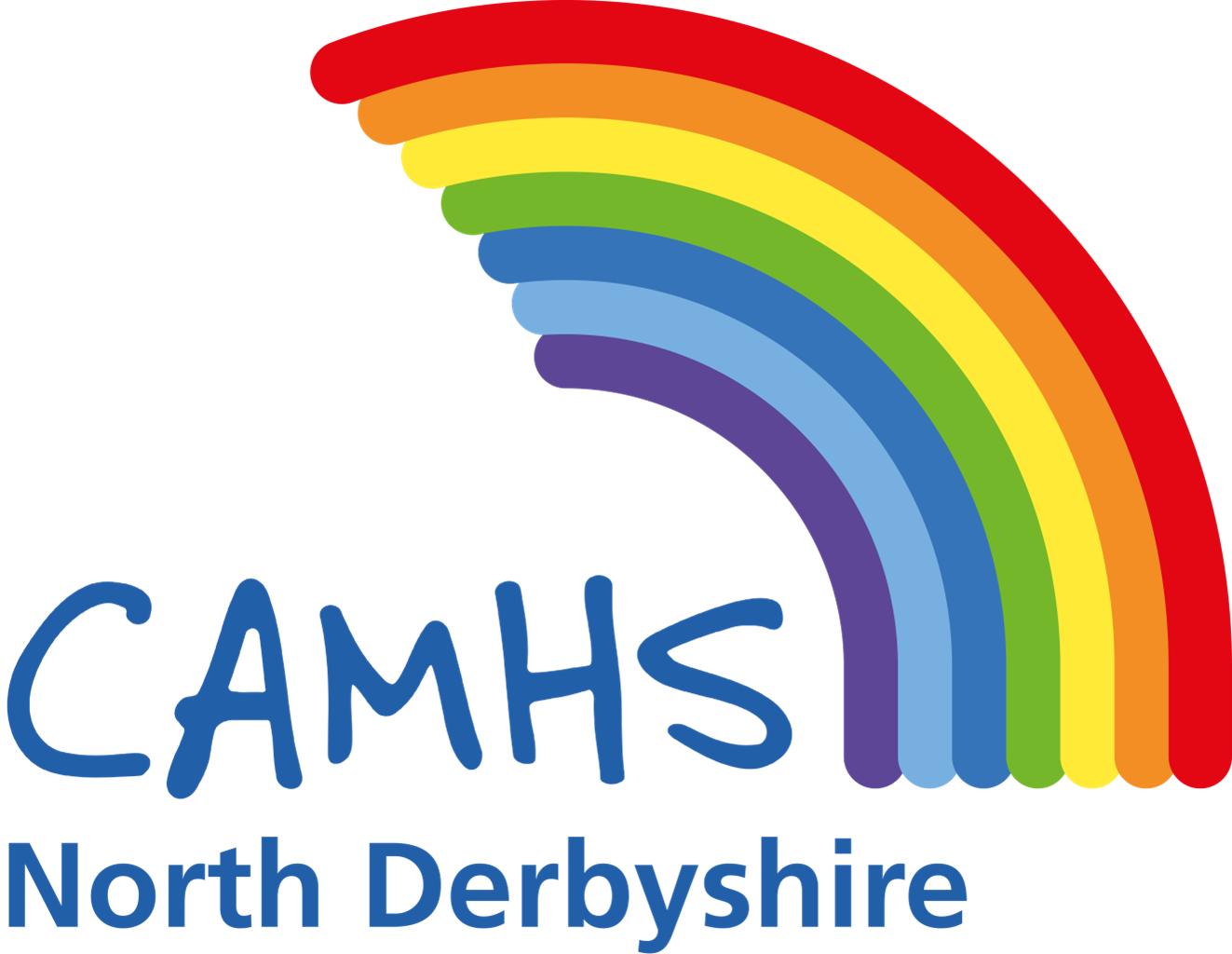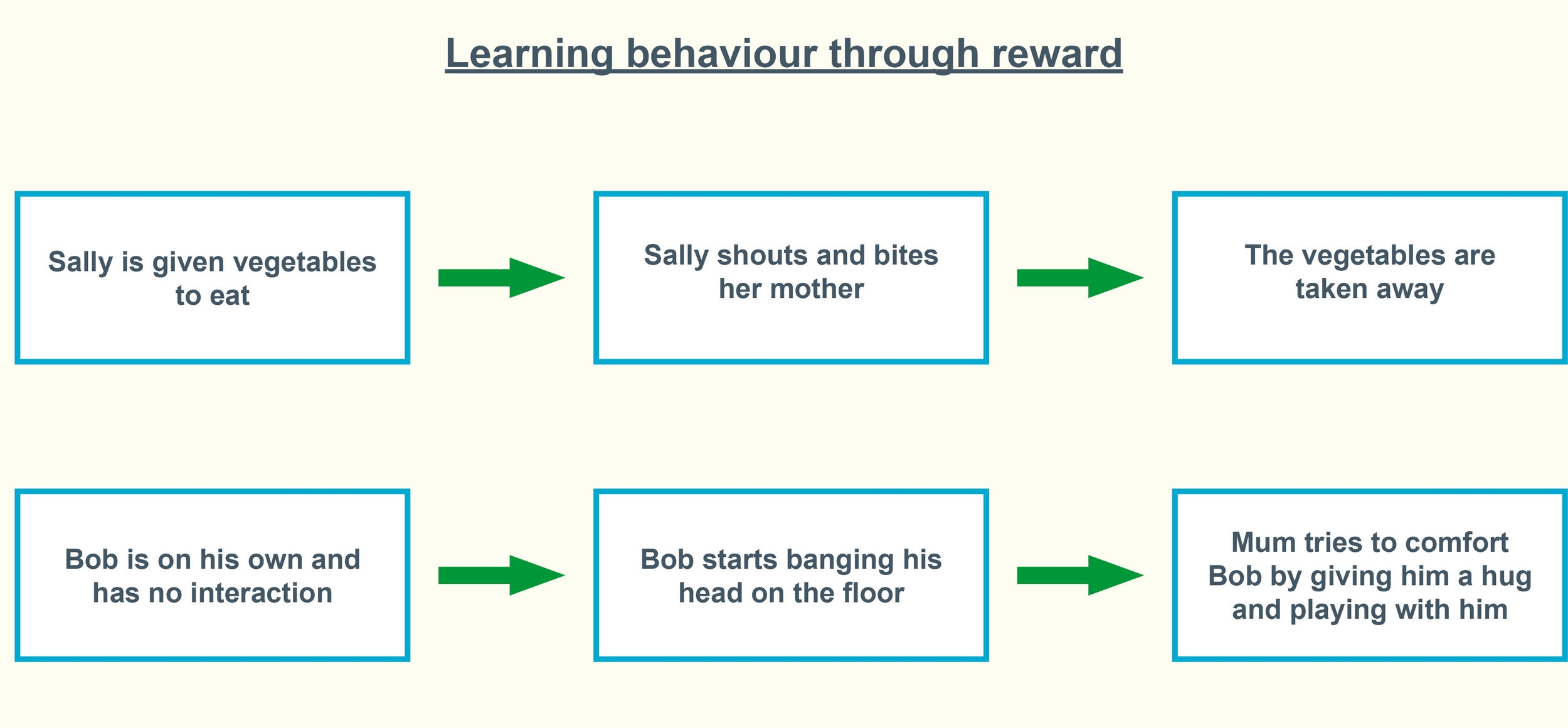learning disabilities
Challenging Behaviour in Young People with a Learning Disability
Introduction
Challenging behaviour is any behaviour that someone displays that is a challenge for others to manage and/or puts the young person or others at risk. Lots of young people with learning disabilities have behaviours that challenge.
There are lots of different types of challenging behaviour and behaviours that one person finds challenging another person may not.
Examples of common challenging behaviour:
Aggression (e.g. hitting, kicking, biting)
Self-injurious behaviour (e.g. head banging, biting self, hitting self)
Shouting/swearing
Sexualised behaviour in public
Throwing items/breaking things
Soiling/smearing
Positive Behaviour Support (PBS) can be a useful framework for thinking about challenging behaviour. It is a person-centered approach which has been recommended for people with LD. It is based on the principle that ‘All behaviour happens for a reason’ and we need to find the reasons or ‘functions’ for each individual in order to reduce that behaviour.
Functions of Challenging Behaviour
There are a number of common possible ‘functions’ or reason that young people create in a challenging way:
Social attention- to get noticed or acknowledged by others
Escape/avoidance - to get away from a situation or task the person finds difficult
Tangible - to get something they want (e.g. food, activities, etc.)
Sensory - because it feels good
Communication - to express their emotions to others
Pain/feeling unwell - to let other know about it or to manage their discomfort.
This list is not exhaustive and there could be many other reasons that a young person may behave in a challenging way. There may be also be lots of different reasons or functions for each individual, which can change over time.
Ask yourself the following questions:
Could they have difficult expressing their frustration? Do they need help in labeling their emotions?
Might they be unclear about what is happening and need to be given some clear, visual timelines of what is happening?
Think about their sensory needs. Is the environment too noisy? Is it too high pitched? Is it too bright? What touch are they experiencing? (some children prefer deep pressure as opposed to light touch).
It can be worth thinking through all of these questions to consider where any problems may be. Usually, several of these issues need to be addressed in order to reduce challenging behaviour.
Understanding challenging behaviour
As a first step in understanding challenging behaviour, it can be useful to keep a record of where and when behaviours occur, as well as a note of what happened before and after, paying particular attention to the environment. This might help identify the triggers and functions of the behaviour (what keeps it going).
Possible ways of supporting young people with their challenging behaviour
From there, we can prevent difficulties happening in the following ways:Altering the environments to better fit a young person’s needs
Developing the young person’s coping strategies and everyday life skills
Developing and supporting communication (both receptive and expressive skills)
And increasing the young person’s quality of life generally
A ‘Positive Behavior Support Plan’ is always a good place to start. In this, you can select two or three key areas to work on - or just one areas at a time. Positive Behaviour Support Plans will often focus on the following areas:
Routine & structure: We know that having routine and structure in place helps children to understand what is going on around them and to feel safe. Giving them a visual timeline or ‘Now and Next board’ can help with this.
Communication: Try using signs, pictures or symbols to support them to understand what is expected of them and/or to communicate their needs to others.
Demands: Make sure that that the things we are asking a child to do meets their individual needs. They will be more stressed if they are overwhelmed by a task, or indeed if they are under-stimulated by certain activities.
Quality of Life: Sometimes children with behaviour that challenges miss out on activities and interactions that make them feel good about themselves e.g. accessing community activities, playing, interacting with their peers or going out. Make sure there are plenty of these opportunities available to them where possible.
Physical Environment: Sometimes young people with LD are more sensitive to the physical environment than other children, this might mean thinking about noise levels, lights, sounds or smells.
Sleep, pain, health: as many young people with LD struggle to communicate to others about their needs, they may have difficulties that have not been picked up on before such as being tired, in pain or uncomfortable in some way. Check in with them regularly and think about discomfort.
When to consider asking for more specialist help
CONSIDER SEEKING HELP:
If challenging behaviour is repeatedly putting the young person or others at risk.
If challenging behaviour is of a frequency and intensity that a young person may be excluded from school or activities in the community.
Please talk to your Paediatrician, Social Worker, or School about a referral to the LD-CAMHS team.
Further support, advice and self-help
The National Autistic Society provides information and support for people with Autism and their families and for professionals. They are a very active organisation and offer some really useful information about strategies and approaches for supporting people with Autism.
Website
The British Institute of Learning Disabilities also have some useful information and further advice about a variety of common issues.
Website
Local Offer is a Derbyshire-specific site which allows you to search for lots of different services, including parenting support groups, in the local area.
Website
Positive Behaviour Support helpline
Bild is offering a Positive Behaviour Support (PBS) helpline to support families and carers of people with learning disabilities, mental health issues or autistic people with the challenges of living with COVID-19 restrictions.
Families and carers can book a call with a PBS consultant to discuss how you are doing, to gain reassurance that you are doing the right thing, or you might want to talk through some ideas and get some practical suggestions.
Select a day and time you would like to receive a call, alongside providing some brief contact details and a brief description of the issue or how you would like support.
There is no structure to the phone call; it is purely a chance to talk to someone who is experienced and who can offer support and guidance.
Please click here to be taken to the information page where there is a further link to book a call.



